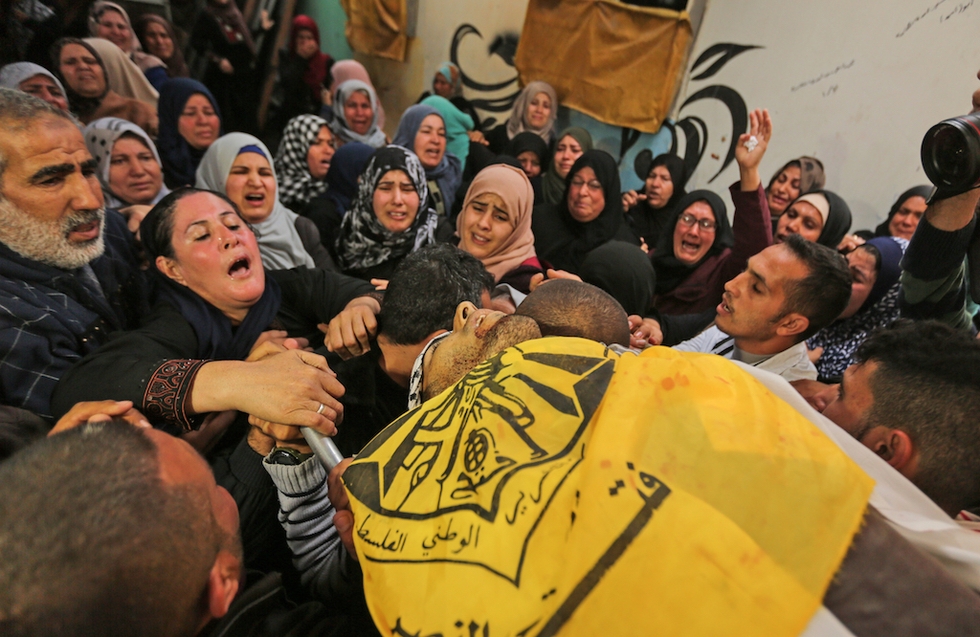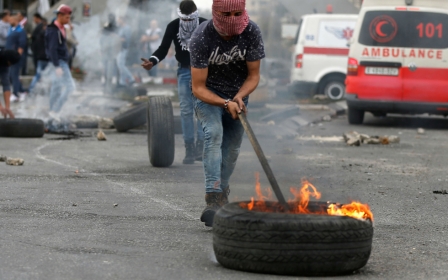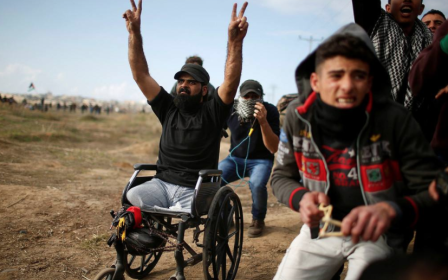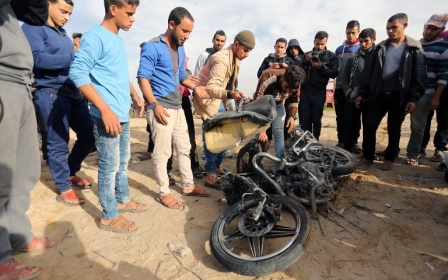Gazan dies of wounds from Israel border clash: Ministry

A Palestinian died on Saturday after being wounded by Israeli fire during a protest on the Gaza border against US recognition of Jerusalem as Israel's capital, the health ministry said.
Sharaf Shalash, 28, sustained bullet wounds last Sunday during a demonstration east of Jabalia in the northern Gaza Strip, ministry spokesman Ashraf al-Qudra said.
His death brings to 11 the number of Palestinians who have been killed since US President Donald Trump announced on 6 December that he would recognise Jerusalem as Israel's capital and move the US embassy there from Tel Aviv.
Nine died in clashes with Israeli troops. Two were killed in an Israeli air strike on Gaza.
Clashes occured in Bethlehem and other areas of the West Bank in the third straight Friday of violence following the US shift in policy regarding Jerusalem's status.
Three Palestinians were injured with rubber-coated bullets and 15 were treated for inhaling toxic gas fired by the Israeli soldiers. In Hebron, there was a confrontation between Israeli soldiers and Palestinians in Halhul village and Al-Arroub refugee camp.
Fourteen Palestinians were injured in Nablus with rubber-coated bullets, according to the Red Crescent. At Beit El settlement, north of Ramallah, confrontation with the Israeli army continued.
In Jerusalem, Palestinians marched after the Friday prayer in Al-Aqsa mosque towards Damascus Gate that leads to the Old City. The march was halted by Israeli soldiers on the Al-Wad road in the Old City.
New MEE newsletter: Jerusalem Dispatch
Sign up to get the latest insights and analysis on Israel-Palestine, alongside Turkey Unpacked and other MEE newsletters
Middle East Eye delivers independent and unrivalled coverage and analysis of the Middle East, North Africa and beyond. To learn more about republishing this content and the associated fees, please fill out this form. More about MEE can be found here.




